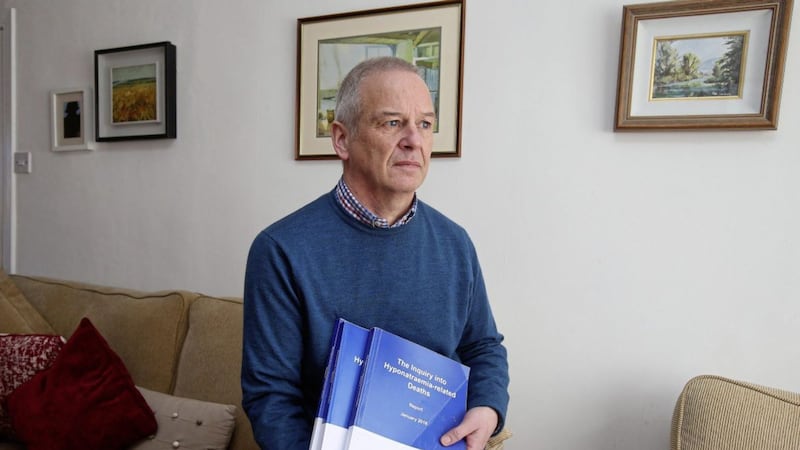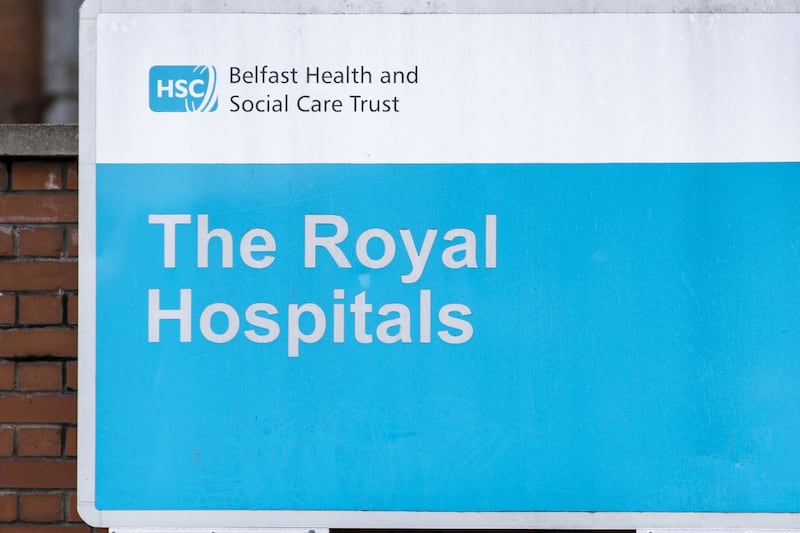A FATHER who lost his child to catastrophic hospital failings has said he is "disappointed" by the medical regulator's rejection of a key recommendation of an inquiry into her death.
Alan Roberts was responding to the General Medical Council's dismissal of a proposal to introduce a new 'candour' law which would force individual doctors to admit their mistakes - or face criminal sanctions.
The east Belfast man's nine-year-old daughter, Claire, passed away 21 years ago in the Royal Belfast hospital for Sick Children.
She was one of five children whose hyponatraemia-related deaths were investigated in a long-running public inquiry, which concluded that four of the deaths were "avoidable" and that there was a 'cover-up' in relation to Claire Roberts' care.
Hyponatraemia is a condition which is caused by a shortage of sodium in the bloodstream.
The GMC, which regulates doctors and is an independent organisation that "helps to protect patients", yesterday released a paper responding to the devastating inquiry findings.
The professional body revealed that 24 doctors named in the report, which was chaired by Sir John O'Hara, had 'self-referred' themselves for investigation.
While accepting there was "profound criticism" levelled against some medics, GMC chiefs said it could not endorse a recommendation to introduce a 'duty of candour' against individuals, but that it should instead be against an organisation - which is the case in England, Scotland Wales.
Introducing criminal sanctions against individual doctors who fail to tell the truth could be "counterproductive", the body added.
Mr Roberts last night told the Irish News that he was not surprised by the GMC's failure to back the proposed new law - which Mr Justice O'Hara described as the most "central" of the inquiry's 96 recommendations.
"Doctors should have nothing to fear if they tell the truth. However, we expected that this law, due to the threat of criminal action against a doctor, would not be accepted by their professional body," he said.
"At the same time, we are extremely disappointed with the GMC response. The inquiry found the culture at the time of Claire's death was not open and honest. The whole point of the recommendation was to learn from the mistakes of the past.
"This provides no confidence to us as a family that appropriate action will be taken when things go wrong. In many ways this decision will reinforce opinion that the culture within the health service remains one of defensiveness."
A new police probe into the care of Claire Roberts is underway, headed up by a team of 12 detectives.
The public inquiry was set up in 2004 and also investigated the deaths of Adam Strain, Raychel Ferguson, Lucy Crawford and Conor Mitchell.
The GMC report also noted serious failings in relation to the "culture and conduct of the institutions" in which the doctors worked.
"Although much time has passed, and much has changed, since the tragic events described by Justice O’Hara, it remains vital that all concerned consider the lessons that can still be learned and the actions that should now be taken," the report added.
"We are currently considering whether there are grounds for us to take action against any of those named in the report in relation to their fitness to practise.
"We have established a dedicated team to take this work forward."








